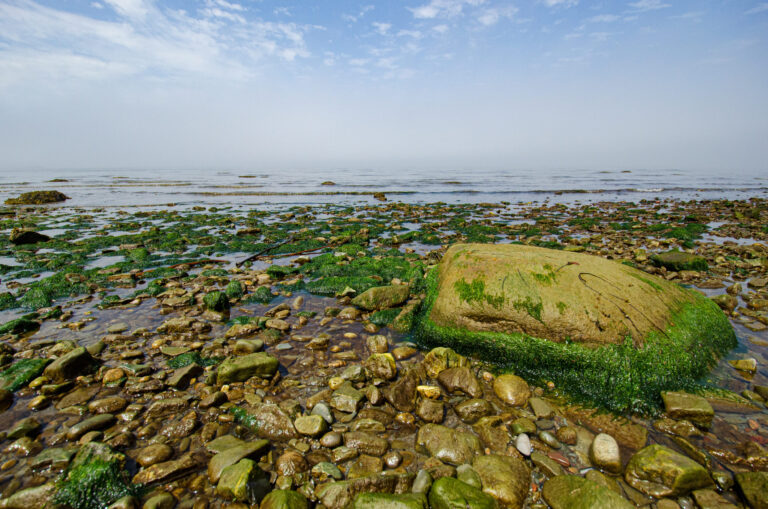In recent years, oxygen concentrations in the Estuary and Gulf of St. Lawrence have been declining even faster than expected.
Piero Calosi and Gwénaëlle Chaillou, professors in the Department of Biology, Chemistry and Geography and the Institut des sciences de la mer (ISMER) respectively at Université du Québec à Rimouski, are interested in how organisms respond to fluctuations in their environment and the functioning of ecosystems. Drawing on decades of research conducted by Gwénaëlle Chaillou on the physico-chemical conditions of the St. Lawrence River, the two researchers and their team sought to analyze and compare the effect of deoxygenation on several invertebrate species that are generally tolerant to hypoxia, and to analyze the resulting impacts on ecosystems.
The scientists first documented the conditions and changes in the natural environment and communities. They then collected invertebrates living at depths of 200 to 300 metres on the seabed in areas of the St. Lawrence River with varying oxygen levels, creating a large sample that they will continue to analyze over the next few years. This work will help them understand what makes certain species of marine invertebrates (called “benthos”) tolerant to deoxygenation.
The team examined stable biological processes such as protein accumulation and lipid fractionation in annelids (worms) and echinoderms, a family that includes starfish and sea urchins. PhD student Andres Cuenca used advanced statistical techniques to address the challenges of studying these organisms, which are far removed from the models used in the laboratory.
Ludovic Pascal's doctoral work, meanwhile, helped determine an oxygen threshold below which the physiological reactions of invertebrate species change drastically. Ecosystem functioning was also severely disrupted below this threshold, leading to unpredictable consequences.
In addition to fulfilling important ecosystem functions, such as breaking down organic matter, invertebrates are at the bottom of the seabed food chain. If this environment were to become deoxygenated, the entire ecosystem and biodiversity would suffer.
References
- Pascal, L., Cool, J., Archambault, P., Calosi, P., Cuenca, A. L. R., Mucci, A. O. et Chaillou, G. (2023). Ocean deoxygenation caused non-linear responses in the structure and functioning of benthic ecosystems, Global Change Biology, 30(1): e16994. doi: 10.1111/gcb.16994
- Cuenca, A. L. R., Madeira, D., Parent, G. J., Pascal, L., Fourcassié, V., Boissonneault, M., Droit, A., Archambault, P., Chaillou, G. et Calosi, P. (2025). Proteomic profiling unveils compensatory physiological mechanisms of an annelid living across a natural deoxygenation gradient, Environmental Research. https://doi.org/10.1016/j.envres.2025.122654




